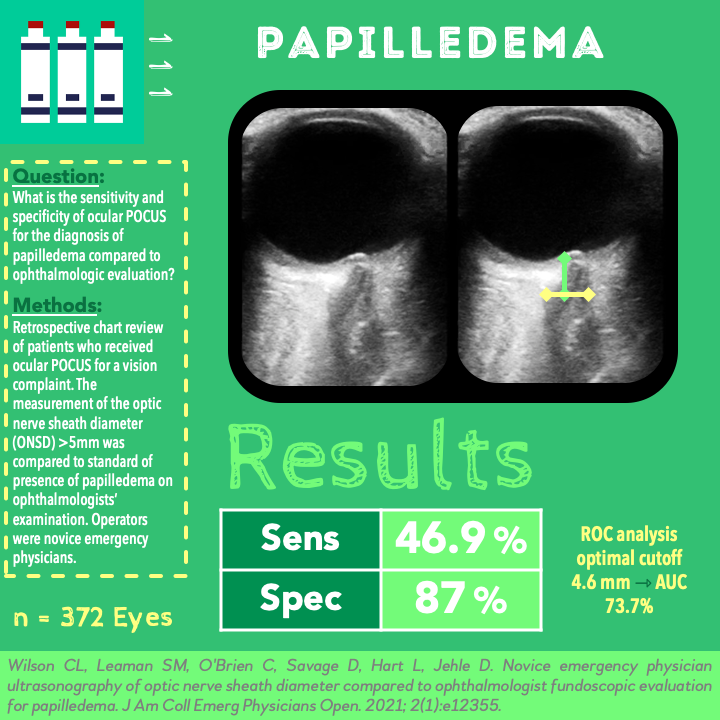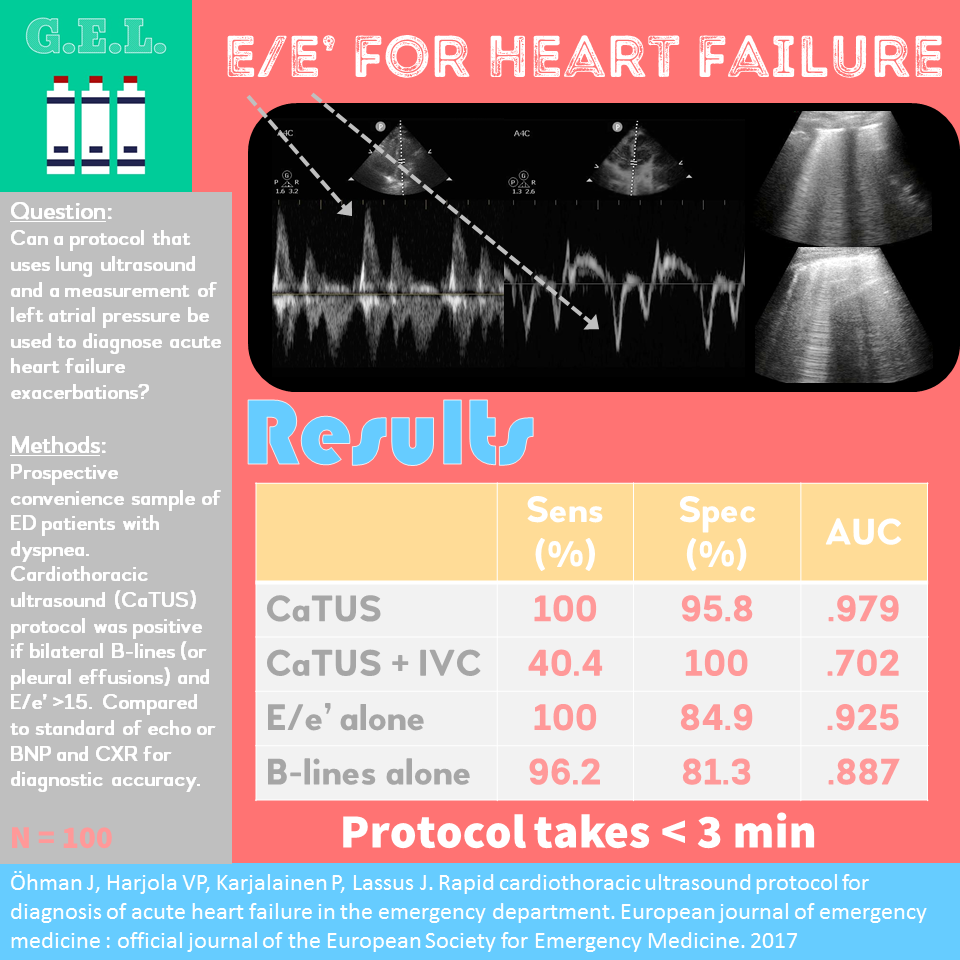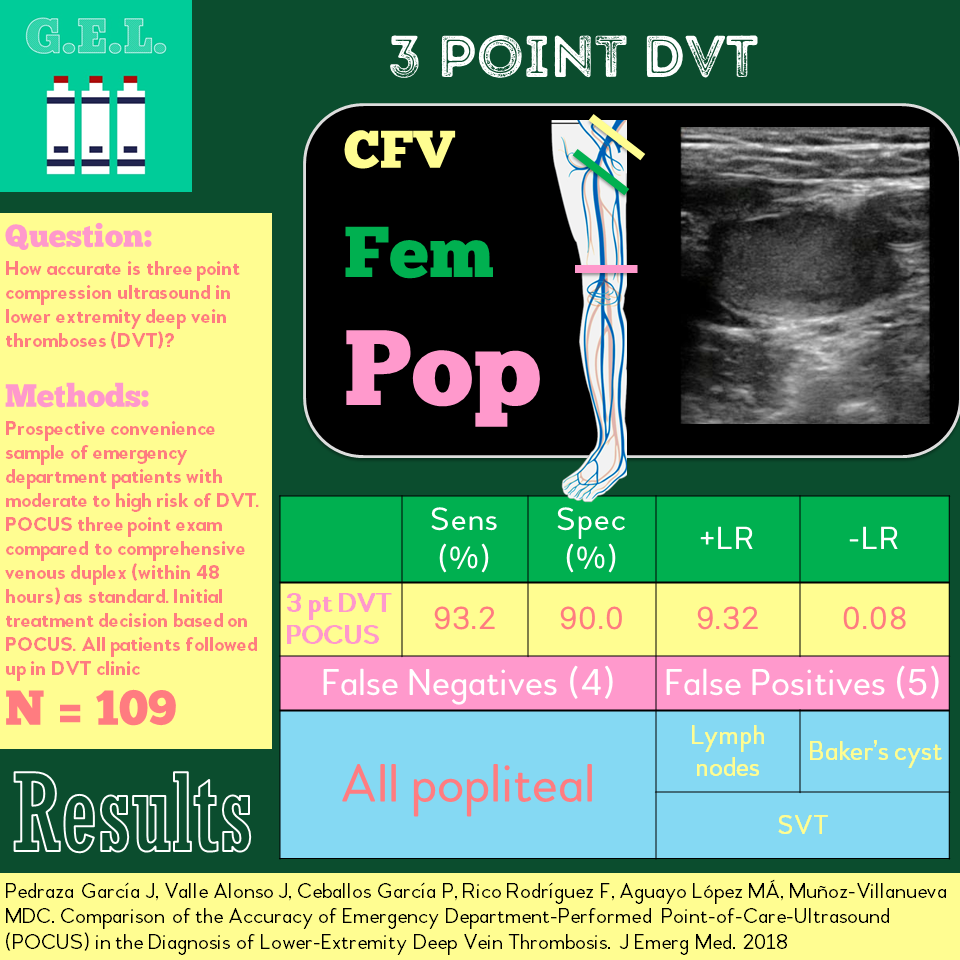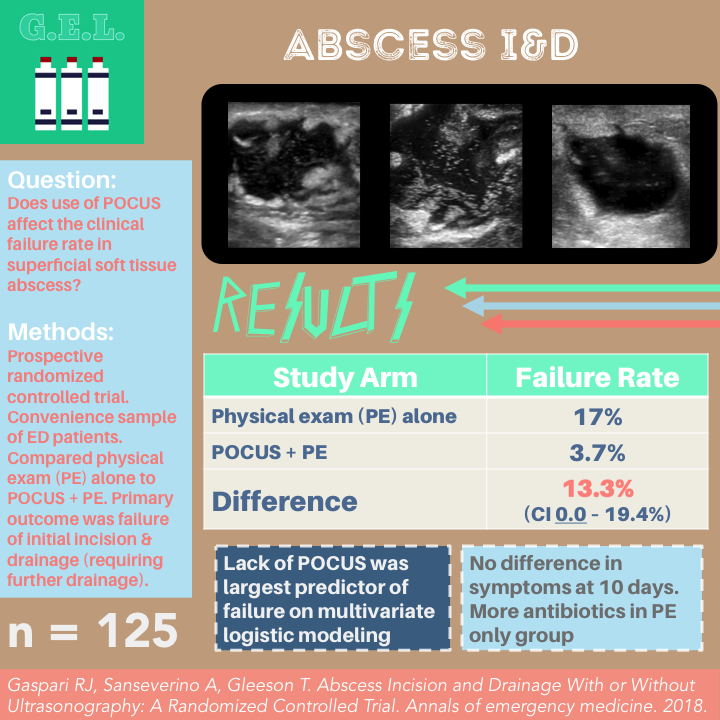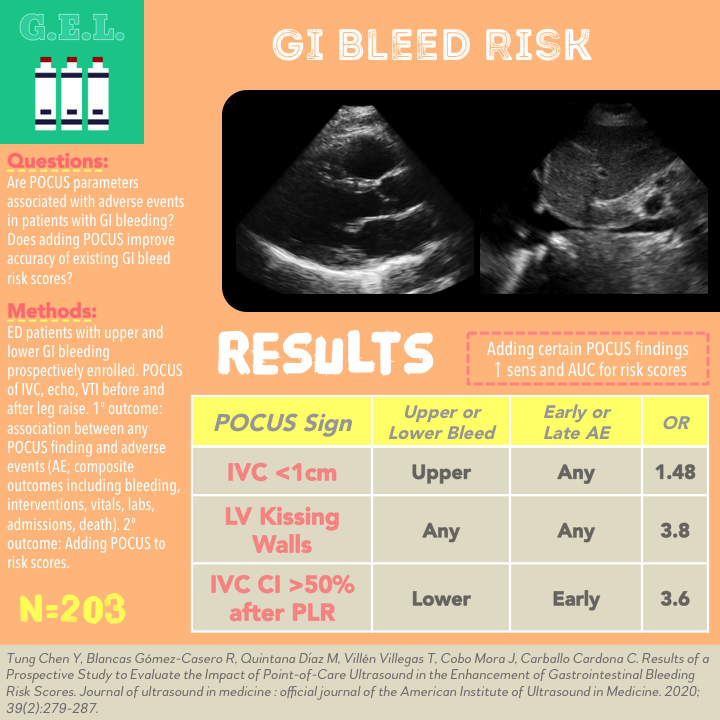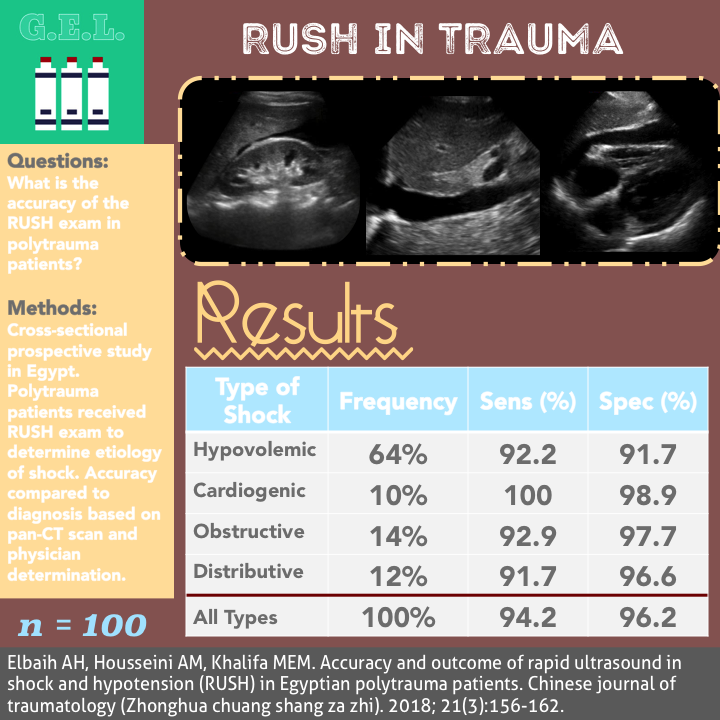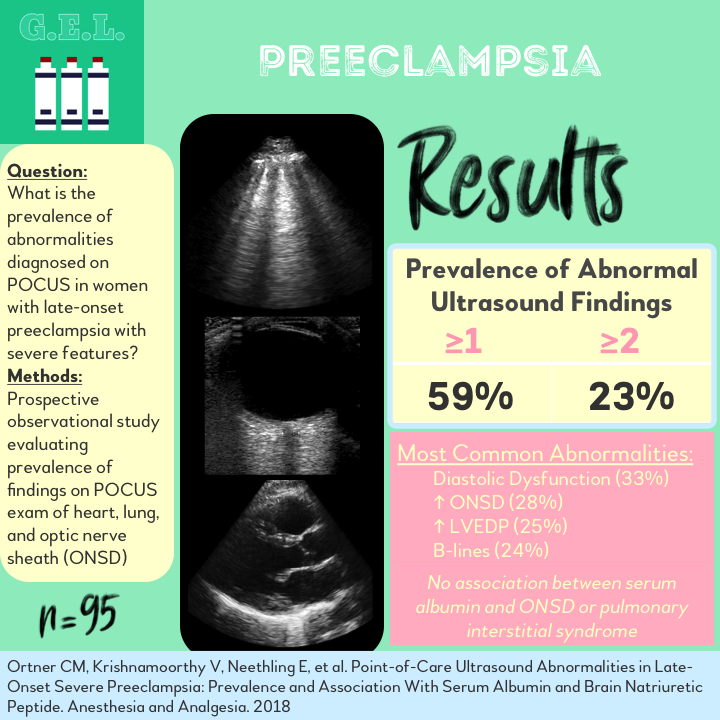- Aug 20th, 2021
- Michael Prats
- leave a comment
- categories:
Category Name: Ultrasound G.E.L.
- Jul 30th, 2021
- Michael Prats
- leave a comment
- categories:
Point of care ultrasound protocols for acute heart failure are a dime a dozen these days - for good reason. Ultrasound has made this diagnosis way easier in the acute care setting. The question now is who can come up with the best protocol - something easy, accurate, and fast. These authors put thei...
- May 21st, 2021
- Michael Prats
- leave a comment
- categories:
- Apr 9th, 2021
- Michael Prats
- leave a comment
- categories:
- Feb 26th, 2021
- Michael Prats
- leave a comment
- categories:
It's not what you think - POCUS is not going to be used to diagnose a GI bleed. However, perhaps it can be used to risk stratify this diverse group of patients. These authors had the idea to check IVC, echo, and LVOT VTI to see if it could help predict which patients are going to have adverse events from their bleed.
- Jan 15th, 2021
- Michael Prats
- leave a comment
- categories:
Deep learning is a branch of artificial intelligence that holds a lot of promise for point-of-care ultrasound, but we don't have much data on how it performs. The fearless investigators in this fascinating study train a deep learning algorithm to recognize sonographic anatomy of the upper extremity and then pit it against expert POCUS users to see who can interpret the images most accurately!
- Nov 13th, 2020
- Michael Prats
- leave a comment
- categories:
The RUSH exam is a family favorite. It's a reliably easy to recall hypotensive protocol that uses ultrasound to help determine the etiology of a patient's shock. Well here's a new idea - trauma patient's can be in shock too, right? So maybe we should perform a full RUSH exam instead of just a measly EFAST? Well...hold your horses there kiddo, there may be more to think about with this one.
- Oct 2nd, 2020
- Michael Prats
- leave a comment
- categories:
